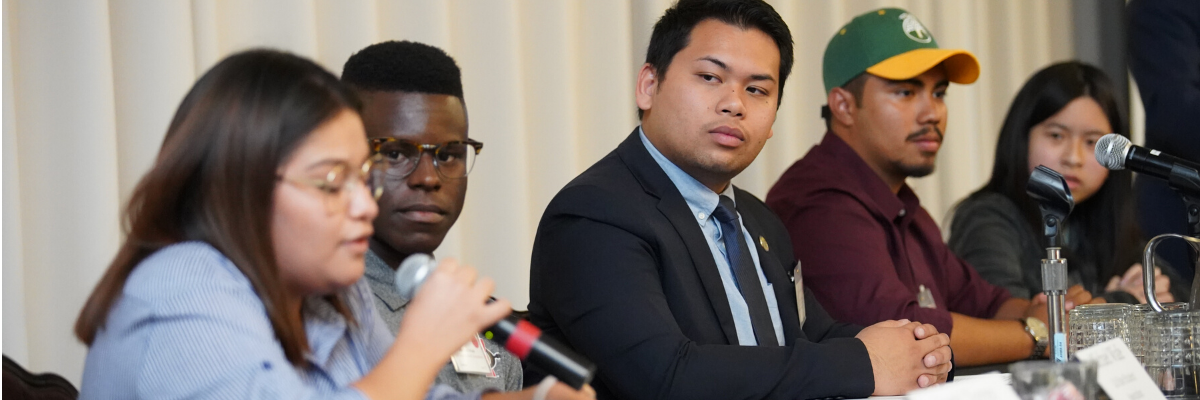
“Empowering Students” Means Building Actual Student Power
You may have read about the recent discord surrounding Assemblymember Kevin McCarty’s bill “University of California Degree for Transfer Pilot Program,” (AB 1291), which seeks to, as he puts it, “once and for all create a simplified, streamlined path for transfers from community college to UC and CSU.” The bill takes an initial step towards establishing the same Associate Degree for Transfer for the University of California system as currently exists for the California State University System. An admirable goal given how difficult transferring to a university can be for a community college student. According to PPIC, in 2019 only 17% of eligible community college students transferred to a UC or CSU. Students and other advocates have been fighting to create a better transfer pathway for community college students for decades. So why are students speaking out against the bill?
Most bills go through a months-long process that gives Californians impacted by the policy multiple opportunities to weigh-in and influence the outcome. The particular policy in AB 1291, however, didn’t even exist until days before the end of the legislative session, bypassing all of the typical check points. And adding insult to injury, according to students, it was created and voted on by policymakers without even seeking their input.
The dissonance raised by the passage of AB 1291 without student input shines a spotlight on the question of our collective responsibility to remove barriers to power and influence for communities most impacted by policy-making. Cailyn Nagle, program manager at Michelson 20MM, recently published a timely blog post on the important distinction between students simply having a voice and students having real power. Nagle deftly makes the case that when students have real power they create transformational change that improves their lives and the lives of folks beyond the college campus.
At Public Advocates, we believe that communities most impacted by policy are the experts of their own experience, and we shape our advocacy to support the power-building of those communities. For more than 50 years, we’ve supported low-income, Black and Brown communities as they fought to bring about material improvements in state policy on school funding, affordable housing, and transportation to name a few. In higher education, we also work closely with our student partners to create policy that removes barriers to accessing and completing their educational goals. Like all other impacted communities, students are the experts of their experience and their collaboration in policymaking is no less critical.
As Nagle explains, however, college students are often seen as child-like and incapable of true decision-making. There are many ways that students are tokenized when they try to make change on their local campus. Sometimes it’s serving as a trustee, doing the same work as other non-student trustees but getting paid less—if at all. Other times it’s the lone student on a board, commission or committee whose vote can only be “advisory,” never determinative. Students may have a voice, but the system’s processes deny them any real power to affect outcomes.
Similarly, in state policy-making, substantive power often lies in the process of making policy, not just in the policy itself. Nothing says power like creating and passing legislation at the eleventh hour without critical input from impacted constituents; bulldozing any semblance of one’s right to be heard.
For policy makers and advocates alike, we must ask ourselves “how are we empowering students in both how we advocate as well as the policies we advocate for?” And, in fact, the word from official student organizations is that “[t]his legislation makes compromises no student would have made.” Thus, the policy outcome will be better too if impacted students are actively engaged in its construction.
While we commend Assemblymember McCarty’s intentions, we should all insist that students have a meaningful opportunity to shape the policies that impact them. History tells us we will all be better for it.
Jetaun Stevens
Senior Staff Attorney, Ed Equity Team, Higher Education

